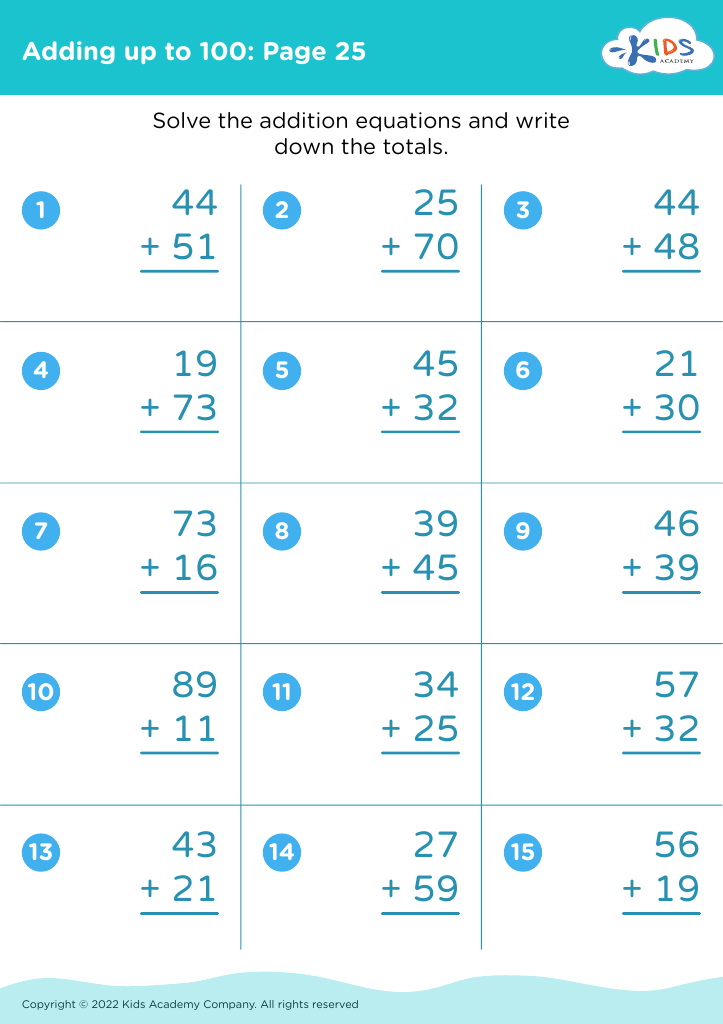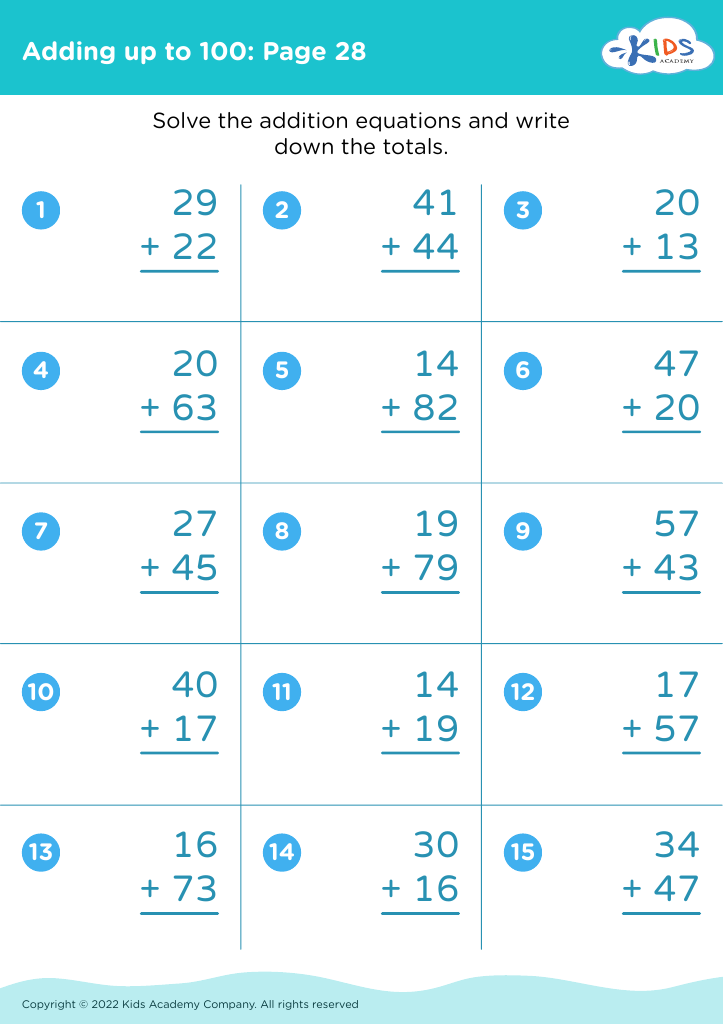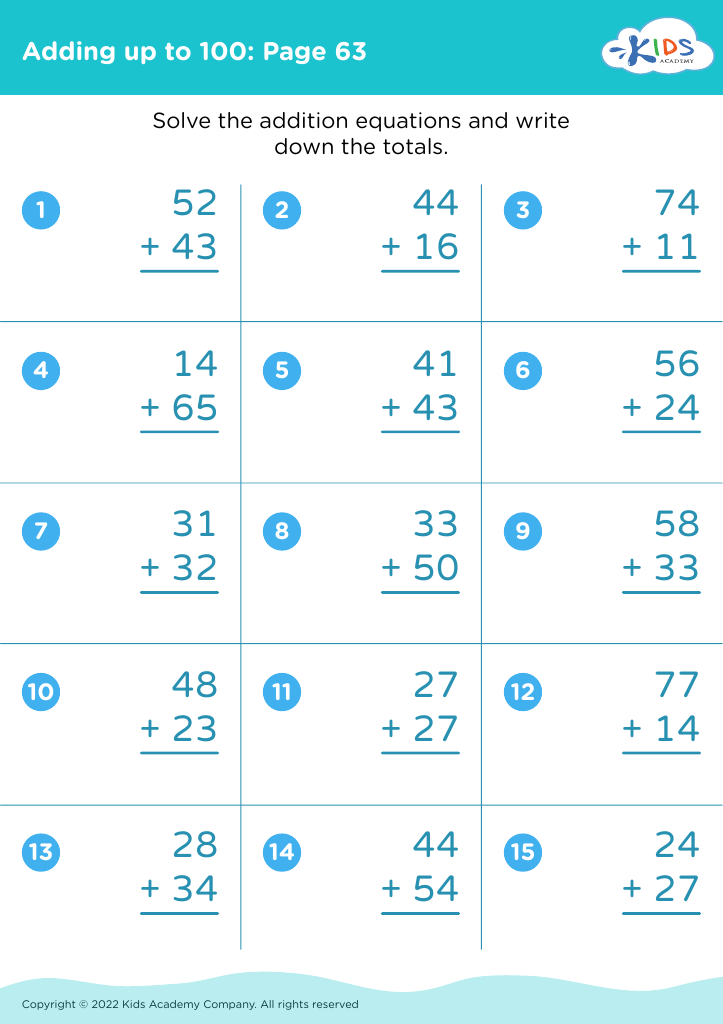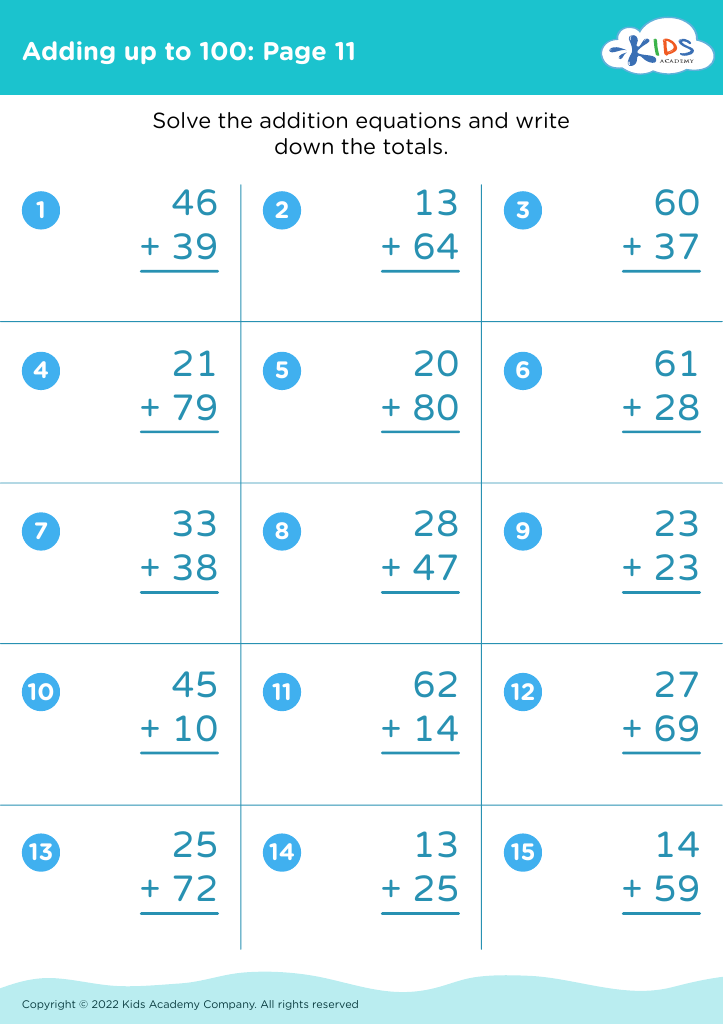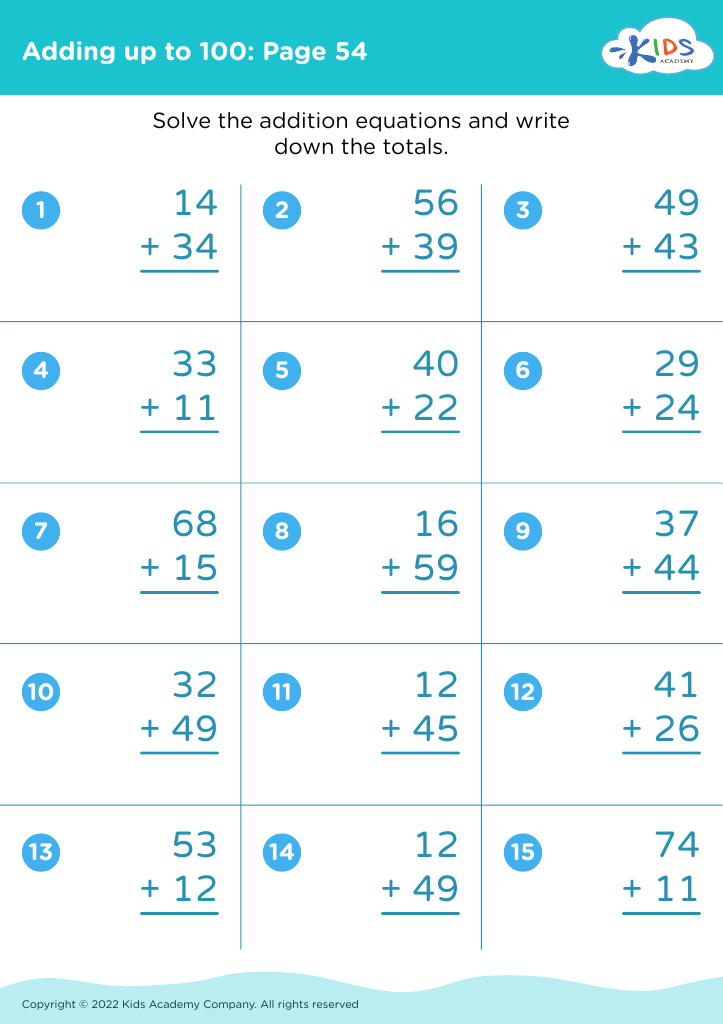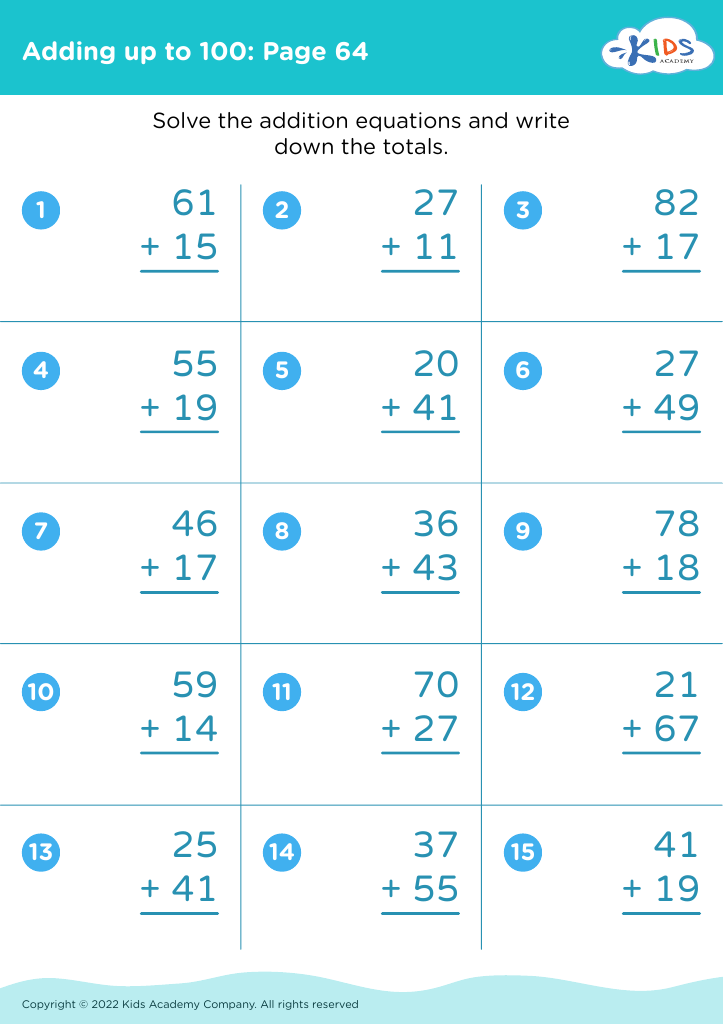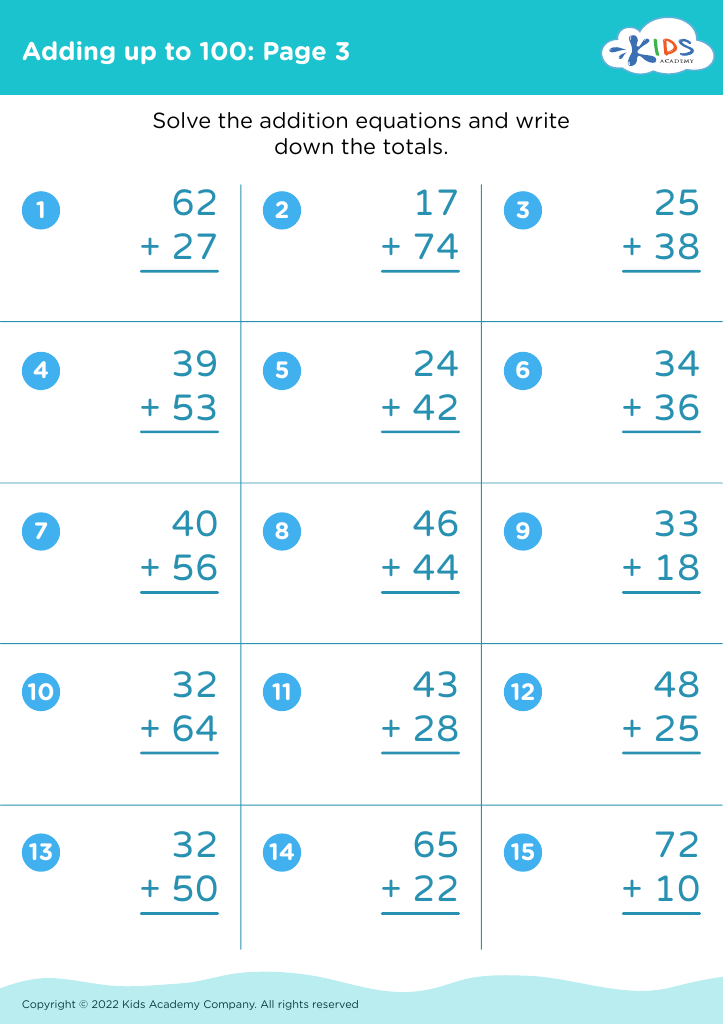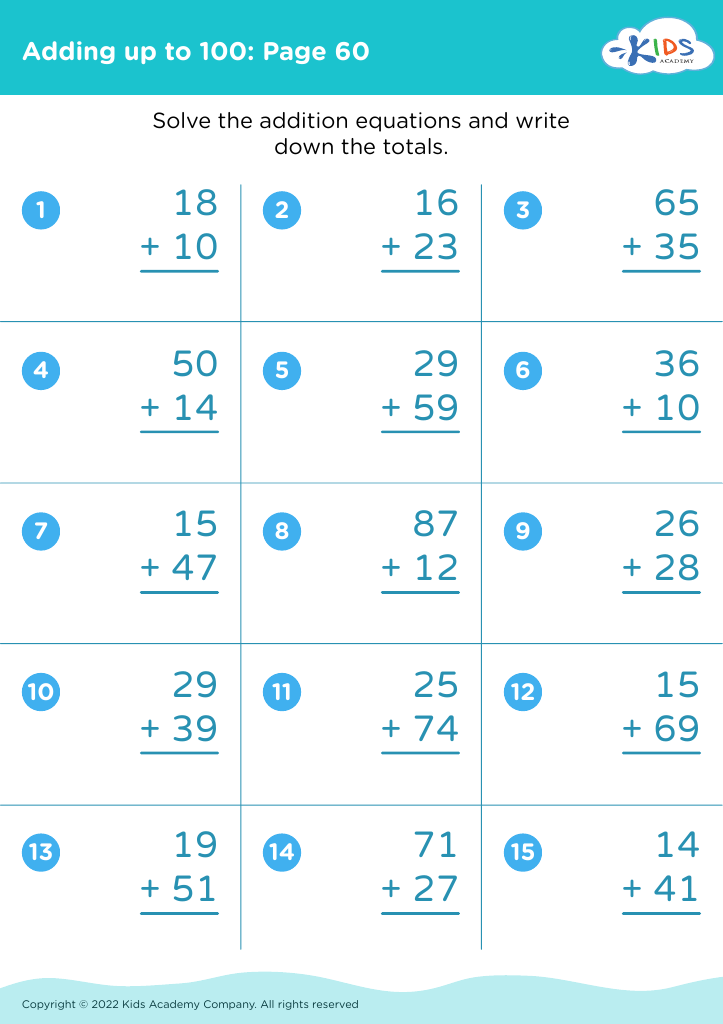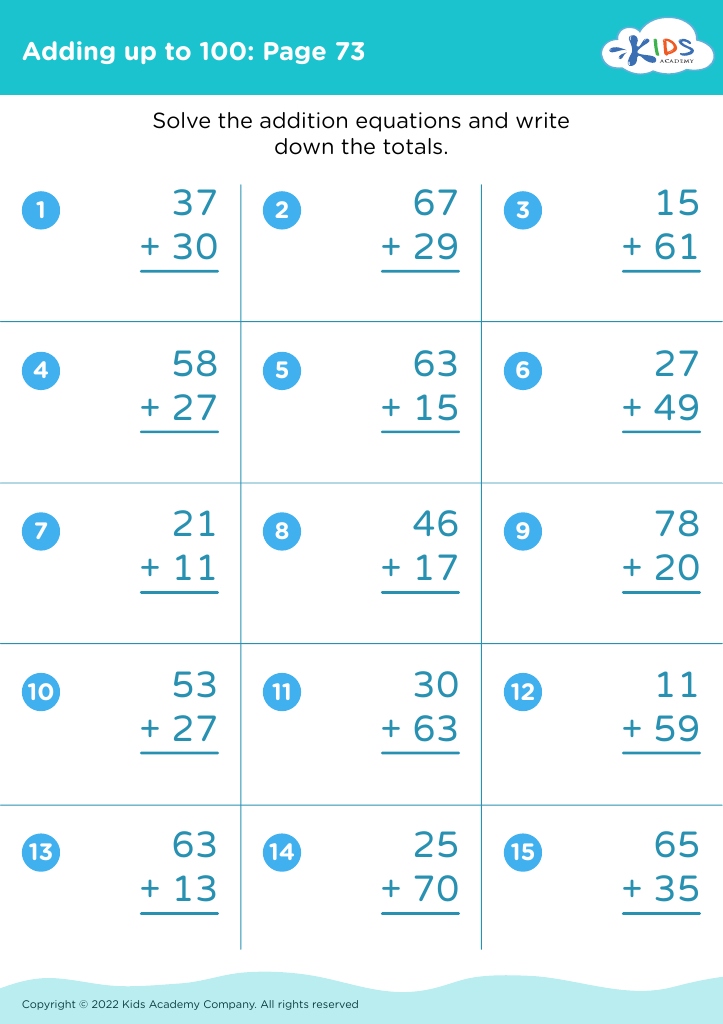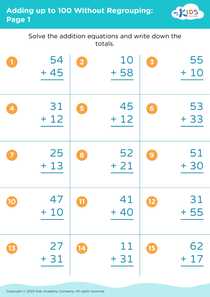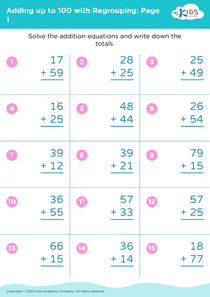Adding up to 100 Misc Worksheets for Ages 3-8
73 filtered results
-
From - To
Our "Adding up to 100 Misc Worksheets for Ages 3-8" offer a delightful journey into the world of numbers for young learners. These expertly designed worksheets aim to build a strong foundation in addition while keeping kids engaged with fun and interactive exercises. Tailored for children ages 3 to 8, each worksheet fosters critical thinking and problem-solving skills with a variety of entertaining and colorful activities. From matching games to fill-in-the-blanks, our resources are perfect for both classroom and at-home learning. Empower your child with confidence in math and watch them excel while having fun!
Parents and teachers should value "Adding up to 100 Misc" for ages 3-8 because foundational math skills are crucial for early childhood development. Introducing young children to addition up to 100 helps develop their numerical understanding, problem-solving abilities, and cognitive skills, laying a strong foundation for future advanced mathematical concepts.
At this age, children’s brains are rapidly developing, and they are highly receptive to learning new skills. Engaging activities that involve adding up to 100 can be both fun and educational, capturing their natural curiosity and interest. This early exposure to math also helps to build confidence and reduces anxiety around the subject, fostering a positive attitude toward learning in general.
Moreover, arithmetic skill is correlated with success in other academic areas. Skills such as counting, pattern recognition, and logical thinking are base components not only in math but also in science and engineering. Including these activities in their routine encourages children to approach learning holistically.
For teachers, addressing addition up to 100 aligns with curriculum standards aimed at preparing students for more complex mathematical challenges. Parents, on the other hand, can support their child's educational journey by incorporating simple, practical calculations into everyday life, making learning both seamless and enjoyable. This collective effort ensures a more rounded and practical early education experience.
